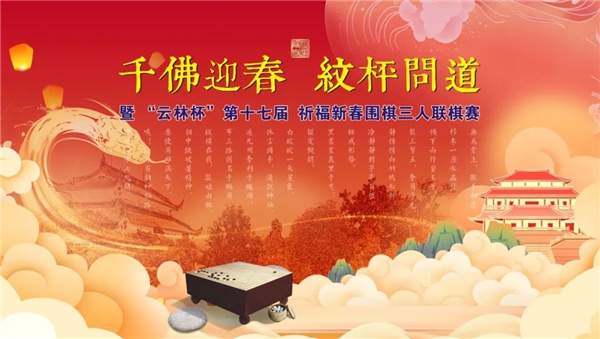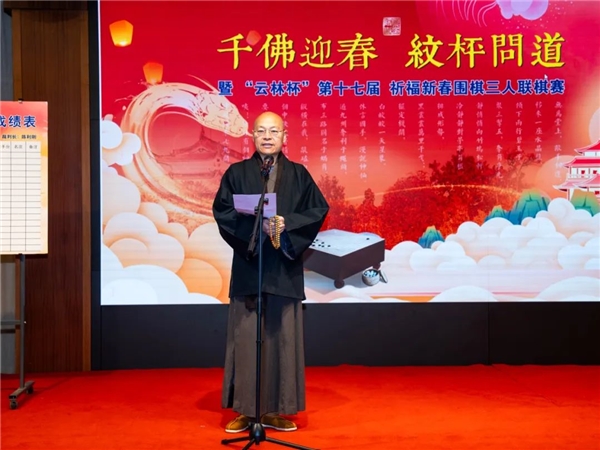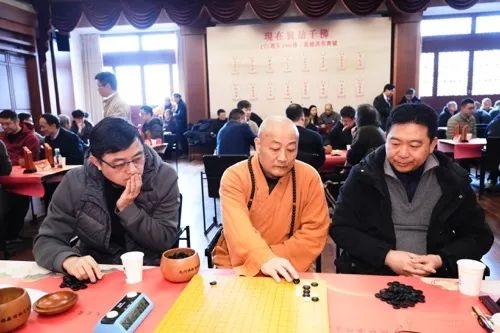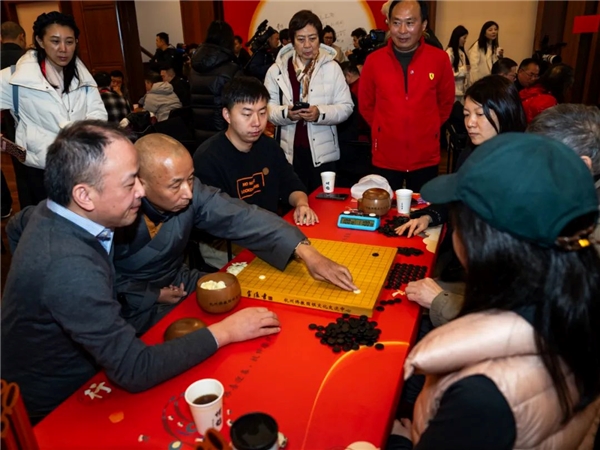
On February 15, the "One Thousand Buddhas Welcoming Spring: A Philosophical Dialogue on the Art of Weiqi and the 17th Yunlin Cup New Year Weiqi Tournament" officially opened at Lingyin Temple in Hangzhou. This event is organized by Lingyin Temple in Hangzhou and the Zhejiang Weiqi Association, with the Hangzhou Buddhist Weiqi Cultural Exchange Center as the host.

At the opening ceremony, Venerable Guangquan, the abbot of Lingyin Temple, representing the Hangzhou Buddhist Weiqi Cultural Exchange Center and Lingyin Temple, warmly welcomed the guests, Buddhist masters, and players attending the "Yunlin Cup" Weiqi Tournament. He expressed heartfelt gratitude to all those who have long supported the development of the Hangzhou Buddhist Weiqi Cultural Exchange Center. He stated that Weiqi, as a cultural treasure of the Chinese nation, embodies profound philosophical ideas and life wisdom. After Buddhism was introduced to China, it intertwined with the Weiqi culture, leading to many stories where Weiqi serves as a medium for understanding the principles of life and the essence of existence. He hoped that all players can achieve their desired results in this competition, uphold the Buddhist Chan spirit of "seeing the game is not the game," and reflect on life through their matches, gaining insights about themselves through victory and defeat.


The "One Thousand Buddhas” refer to the Buddhas of the current fortunate eon (kalpa), with our original teacher, Shakyamuni Buddha, being the fourth Buddha among them. This year's "Yunlin Cup" has invited 16 teams to participate, continuing to use the names of the Buddhas from the virtuous kalpa. This year, the team names are based on the 171st to 186th Buddhas, which are: Namo Buxubu Buddha, Namo Juewu Buddha, Namo Huaxiang Buddha, Namo Shanzhuwang Buddha, Namo Shanweiyi Buddha, Namo Bianjian Buddha, Namo Wuliangming Buddha, Namo Baotian Buddha, Namo Mieguo Buddha, Namo Chiganlu Buddha, Namo Renyue Buddha, Namo Xijian Buddha, Namo Zhuangyan Buddha, Namo Zhuming Buddha, Namo Shanding Buddha, and Namo Daobi’an Buddha.